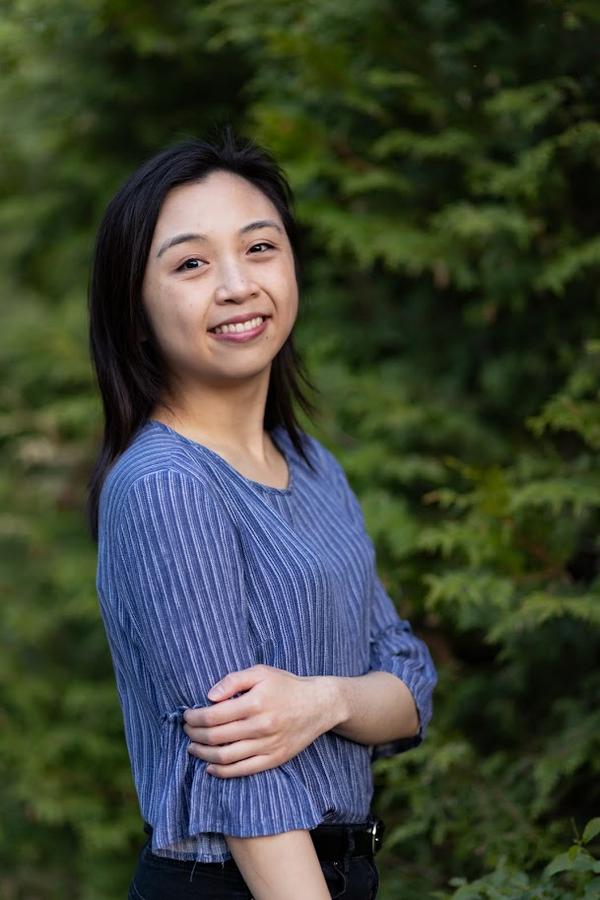Hayley Ng, Rehabilitation Sciences Institute

Supervisor: Dr. Kara Patterson
Research Title: Exploring the impact of digital dance on psychosocial factors post-stroke
Description of your Research:
The primary aim of my thesis is to determine whether psychosocial benefits (social connectedness, improved mood and stress) can be obtained with a digital dance class in the post-stroke population. Secondary aims will look to understand some of the influencing factors and underlying mechanisms of the benefits of digital dance. The primary aim of my thesis is to determine whether psychosocial benefits (social connectedness, improved mood and stress) can be obtained with a digital dance class in the post-stroke population. Secondary aims will look to understand some of the influencing factors and underlying mechanisms of the benefits of digital dance.
Why did you Choose this Department:
I chose to return to RSI, specifically to my current supervisor’s lab, due to my passion in integrating dance and rehabilitation together, as well as my previous experience working in her lab during my undergraduate career. At that time, I had the opportunity to work on various projects that integrated these passions, which I really enjoyed. Although I’m still exploring future career options, I currently aspire to become a clinician scientist, where I hope to integrate my passions in dance and rehab together through the implementation of theory into practice and using clinical practice as a physiotherapist to inform my research. With that, I felt that RSI would help me to develop my skills in creating research questions and conducting research in the rehabilitation field, while furthering my knowledge in my research area of interest.
How was your Experience Looking for a Research Opportunity:
During my undergraduate career, I wanted to gain more research experience and knew I was very passionate about the integration of dance and rehabilitation. As a result, I thought a good place to start would be to find a lab that conducted this sort of research in Canada and searched online, where I found my current supervisor. I reached out via email and was fortunate enough to be given an opportunity to start my research journey there, where I worked on various tasks within projects that integrated dance and science together, over multiple summers. Since I was a student at McMaster, I also searched for and reached out to a few researchers in the rehabilitation sciences, and completed a research practicum and thesis with the MacStroke Canada lab. These preliminary opportunities helped me get my foot in the door to meet new people in the rehab research field, further my research skills, and build my interest in pursuing research.
When did you Start your Research Experience:
I started my research experience during my undergraduate degree, where I volunteered and worked with my current supervisor on many different dance and rehabilitation projects as a research trainee, including leading my own research project which examined the synchronization of movement to music in salsa dancers, and assisting in a randomized controlled trial that compared the effects of a dance program with an exercise and relaxation program on various parameters in individuals with chronic stroke (I’m currently leading the latter study!). At the same time, I did my research practicum and thesis with the MacStroke Canada lab during my undergraduate degree at McMaster University. These experiences helped me build the foundational skills for research while helping me grow my interest in pursuing research further as a PhD student.
Why did you Choose this Supervisor:
Since my undergraduate degree, I was very passionate in the integration of dance and rehabilitation given my background as a dancer and a Kinesiology student, and now a physiotherapy resident. Although this seems to be a niche topic, I was fortunate enough to find my supervisor and her lab. Further, as I worked with her lab over the years, I enjoyed working with her, as well as the supportive lab environment and decided to pursue my PhD in the lab that started it all.
What’s your Experience with Research:
In general, I would say that I enjoy research, as it gives me an opportunity to discover something new, contribute to the field of science, and help others in the post-stroke population. However, there are some periods where I’ve been very stressed and frustrated, such as when things that I couldn’t even imagine go wrong, went wrong. Despite this, the support from the lab and my supervisor played a role in helping me get over these challenges and continue to push forward. The reassurance from my supervisor that it is more common for things to go wrong in research than go right, helped me feel better after the first study I lead as a PhD student went nothing as planned and was paused. Although there are many stressors along the way, I’ve learned to problem solve and think outside the box, reach out for help when needed, take things day by day when things get tough, and continuing to persevere despite the challenges thrown in my way.
How’s the Social Experience with Research:
Research provides an opportunity to work with a wide range of people. Specifically, clinical research provides the opportunity to collaborate with an interdisciplinary research team of individuals with various backgrounds and interests, as well as participants with unique and interesting stories.
What’s your Future Career Plans?
I’m still trying to figure out my exact career path, however, I’m currently interested in pursuing academia and becoming a clinician scientist, where I aspire to combine my passions in dance and rehab.
Quote:
Perseverance is failing 19 times and succeeding the 20th. – Julie Andrews
It’s hard to beat a person who never gives up – Babe Ruth
Tip:
Maintaining a healthy work life balance is very helpful! Although you may feel compelled to work all the time, having a hobby or a passion can help you decompress and take your mind off your PhD work.